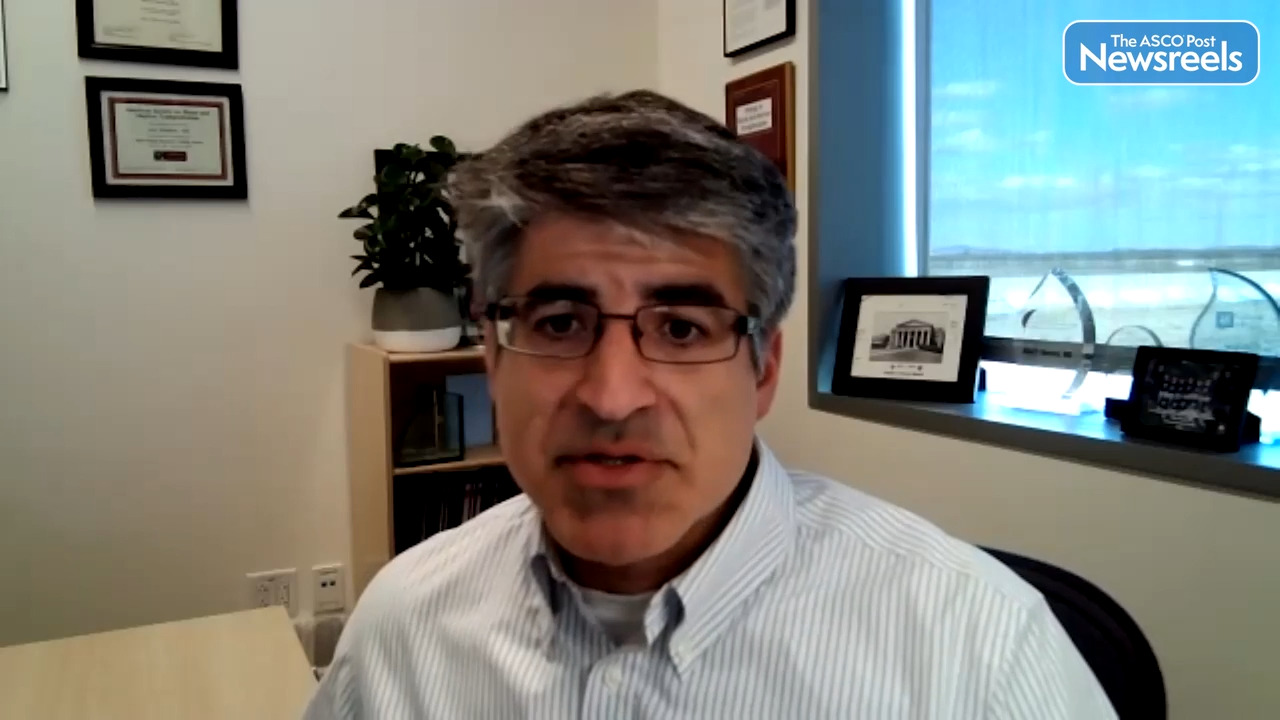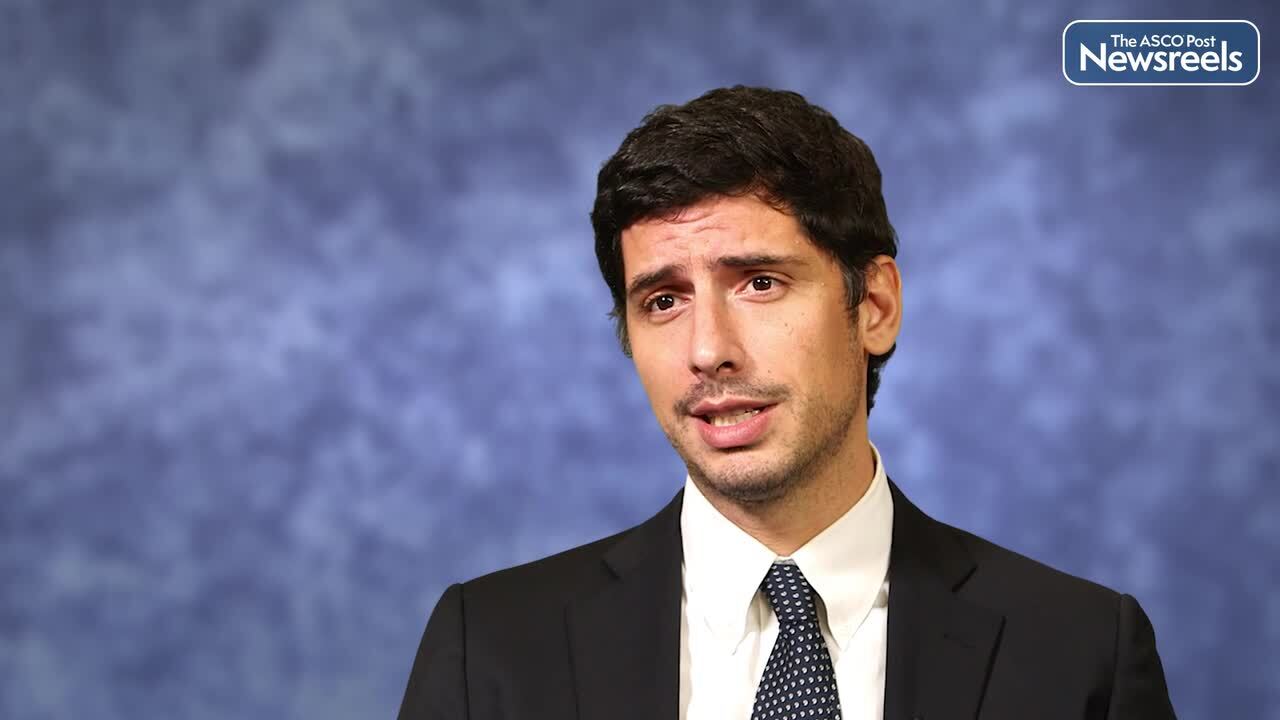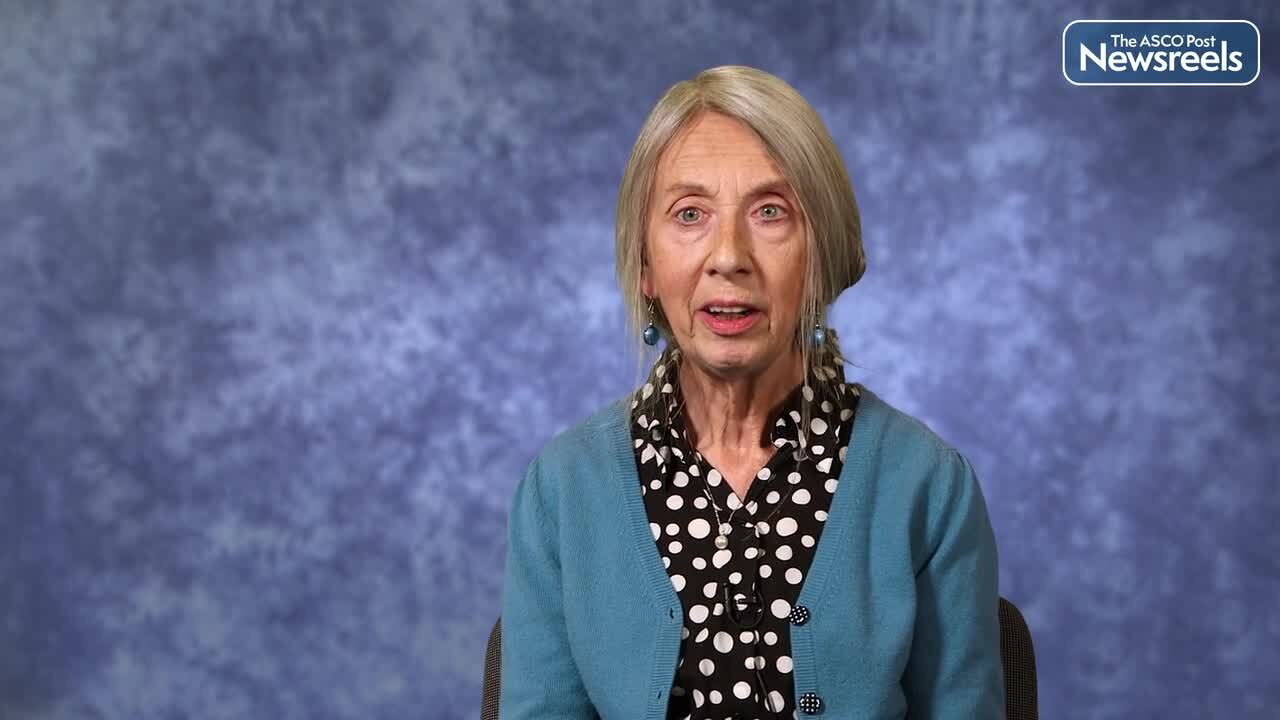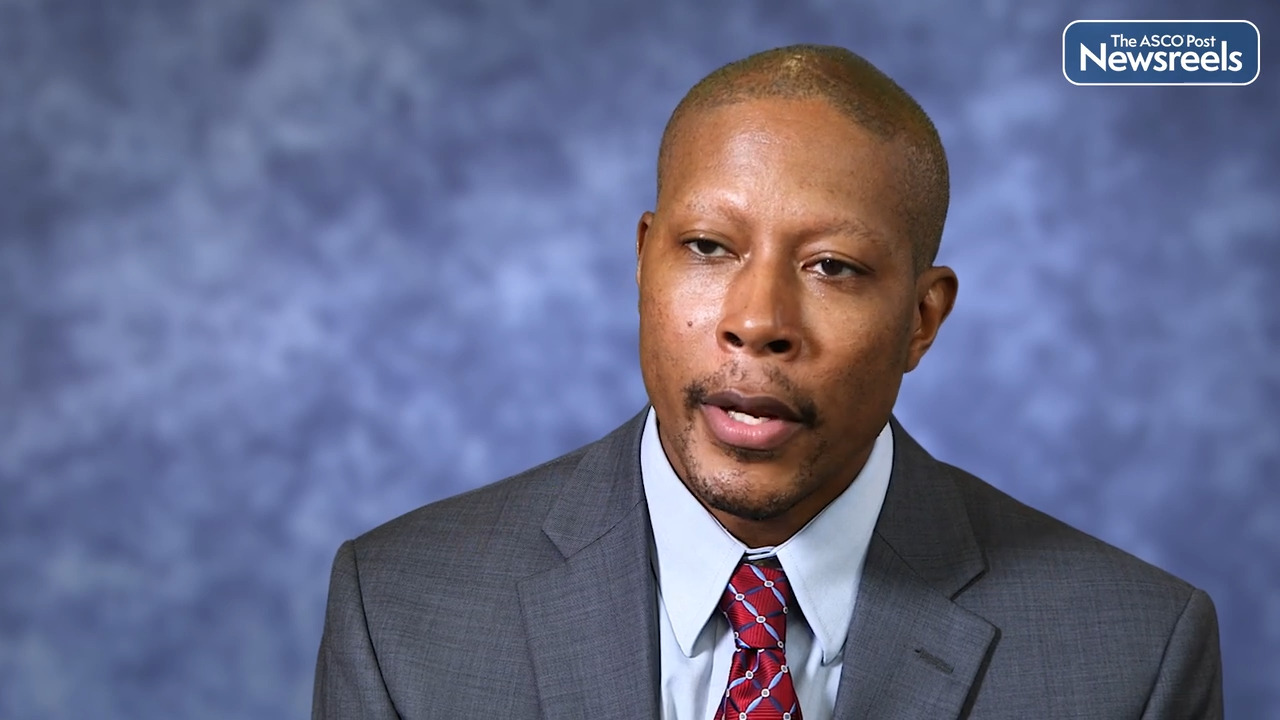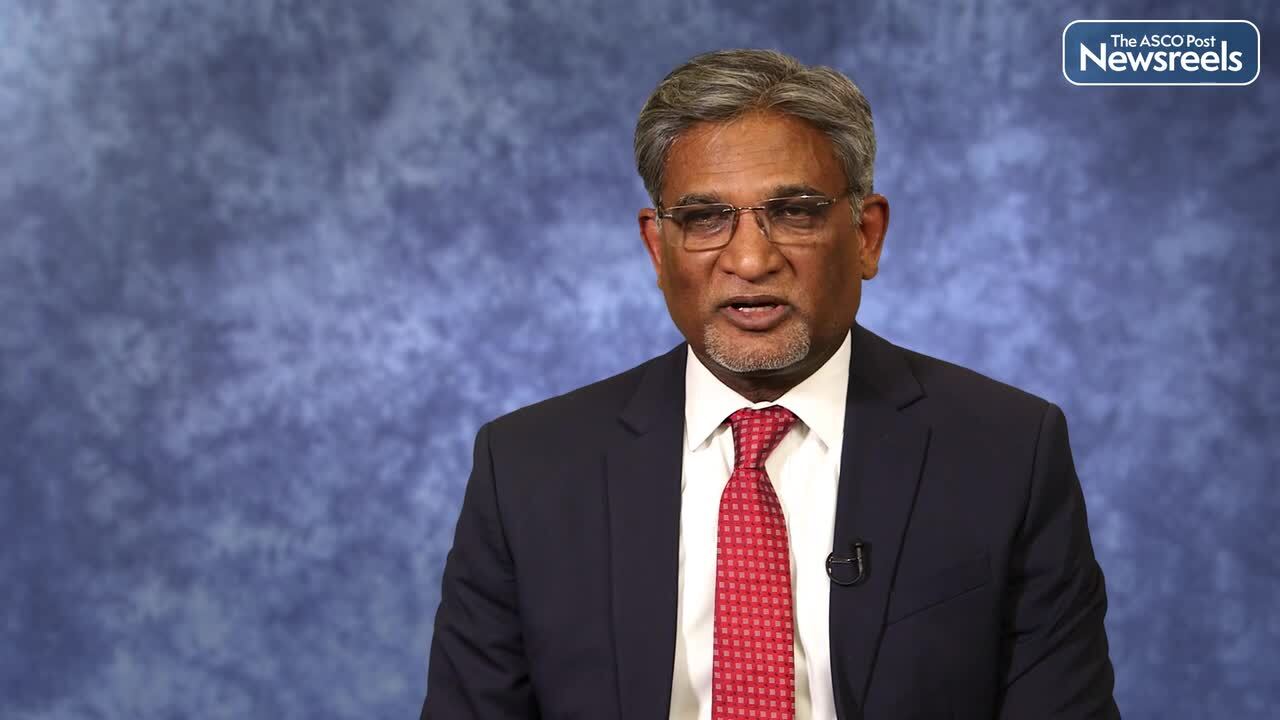Eunice S. Wang, MD, on AML: Gemtuzumab Ozogamicin Plus Standard Induction Chemotherapy Improves Outcomes
2022 ASH Annual Meeting and Exposition
Eunice S. Wang, MD, of Roswell Park Comprehensive Cancer Center, discusses the outcomes of patients newly diagnosed with acute myeloid leukemia (AML) who were treated with cytarabine plus daunorubicin plus gemtuzumab ozogamicin (GO). These patients experienced higher rates of measurable residual disease–negative complete remission and complete remission with incomplete count recovery, compared to those treated with cytarabine plus idarubicin daunorubicin alone. Although adding GO was not associated with improved overall survival, longer follow-up is warranted to determine an absolute survival advantage of this regimen (Abstract 58).
The ASCO Post Staff
Alex F. Herrera, MD, of the City of Hope National Medical Center, discusses results from the POLARIX study, which showed that circulating tumor DNA (ctDNA) analysis has prognostic value for patients with previously untreated diffuse large B-cell lymphoma. Patients who did not achieve 2.5 or greater log-fold change and/or did not have ctDNA clearance following one cycle of polatuzumab vedotin along with rituximab, cyclophosphamide, doxorubicin, and prednisone had inferior outcomes than those who did. Early changes in ctDNA levels may be of use in risk-adapted trial designs to identify patients in need of alternative treatment. (Abstract 542).
The ASCO Post Staff
Francesco Maura, MD, of the University of Miami, Sylvester Comprehensive Cancer Center, discusses his team’s findings in which they defined a comprehensive catalogue of genomic determinants of response to DKRd (carfilzomib, lenalidomide, dexamethasone) in newly diagnosed multiple myeloma. The researchers have identified a number of new genomic alterations that explain resistance to the agents currently used in combination regimens (Abstract 470).
The ASCO Post Staff
Irene Roberts, MD, of Oxford’s Weatherall Institute of Molecular Medicine, discusses children with Down syndrome, who have a more than 100-fold increased risk of developing acute myeloid leukemia before their fourth birthday compared to children without Down syndrome. Their risk of acute lymphoblastic leukemia is also increased by around 30-fold. Dr. Roberts details current knowledge about the biologic and molecular basis of this relationship between leukemia and Down syndrome, the role of trisomy 21 in leukemogenesis, and the clinical implications of these findings.
The ASCO Post Staff
Tycel J. Phillips, MD, of the City of Hope National Medical Center, discusses data that showed fixed-duration glofitamab monotherapy induced high and durable complete response rates in patients with mantle cell lymphoma (MCL) who received obinutuzumab pretreatment. This is one of the largest data sets and longest follow-ups reported with a CD20/CD3 bispecific monoclonal antibody for patients with relapsed or refractory MCL (Abstract 74).
The ASCO Post Staff
Anand P. Jillella, MD, of Georgia Cancer Center at Augusta University, discusses results from the ECOG-ACRIN EA9131 Trial, which showed that using a simplified treatment algorithm and management recommendations made by a group of specialists, resulted in a dramatic improvement in 1-year survival of patients with acute promyelocytic leukemia (Abstract 421).
